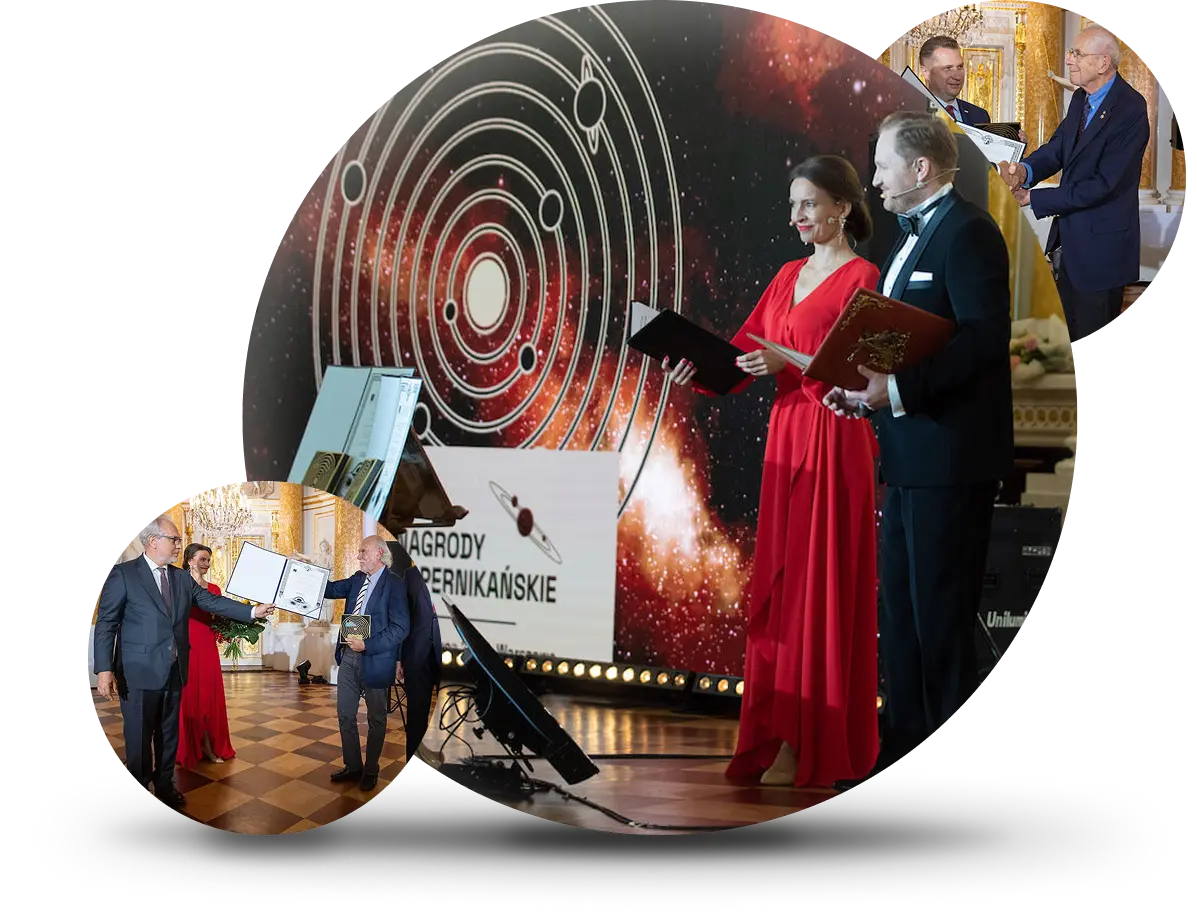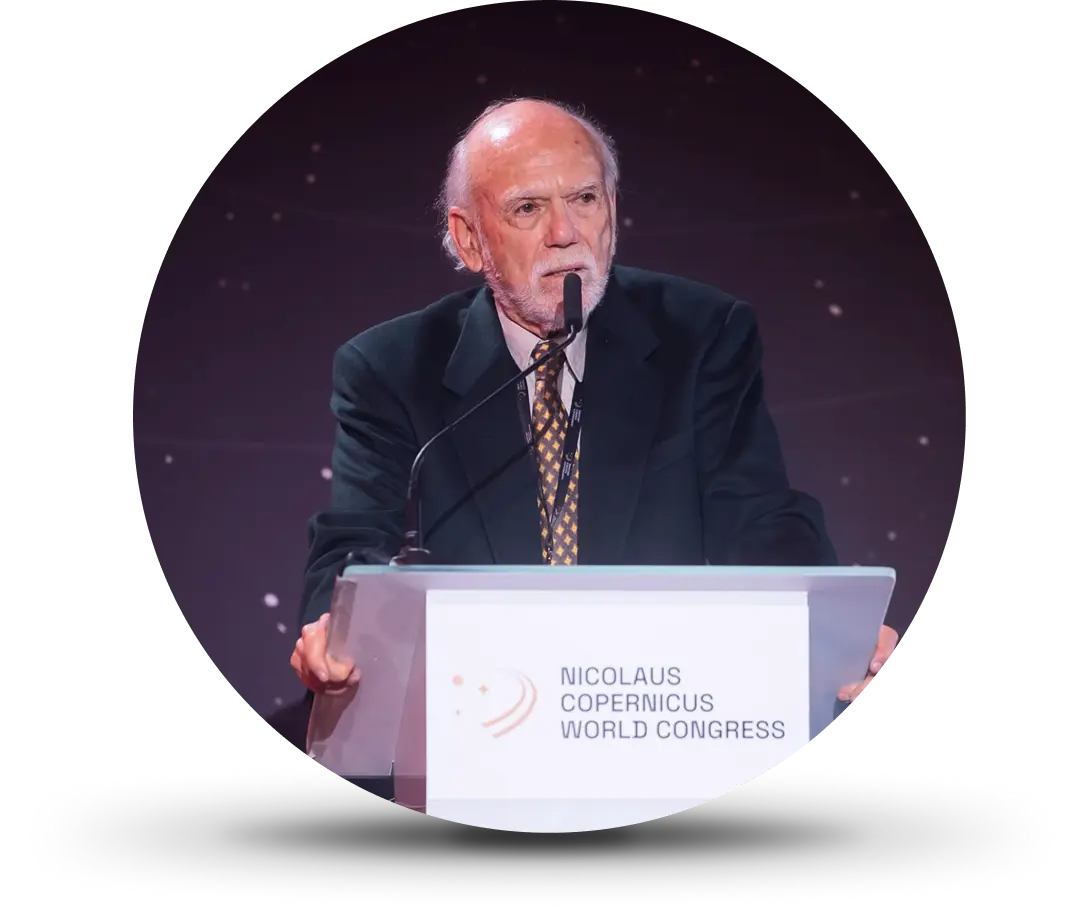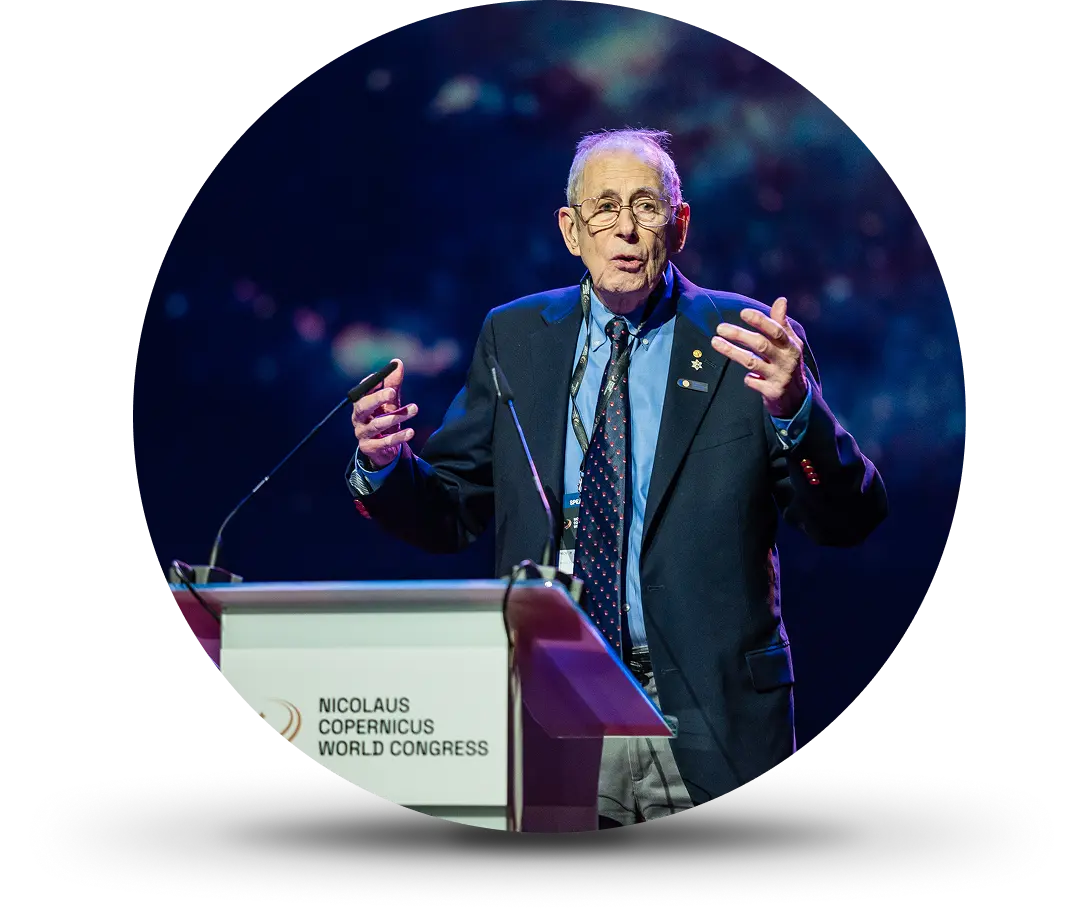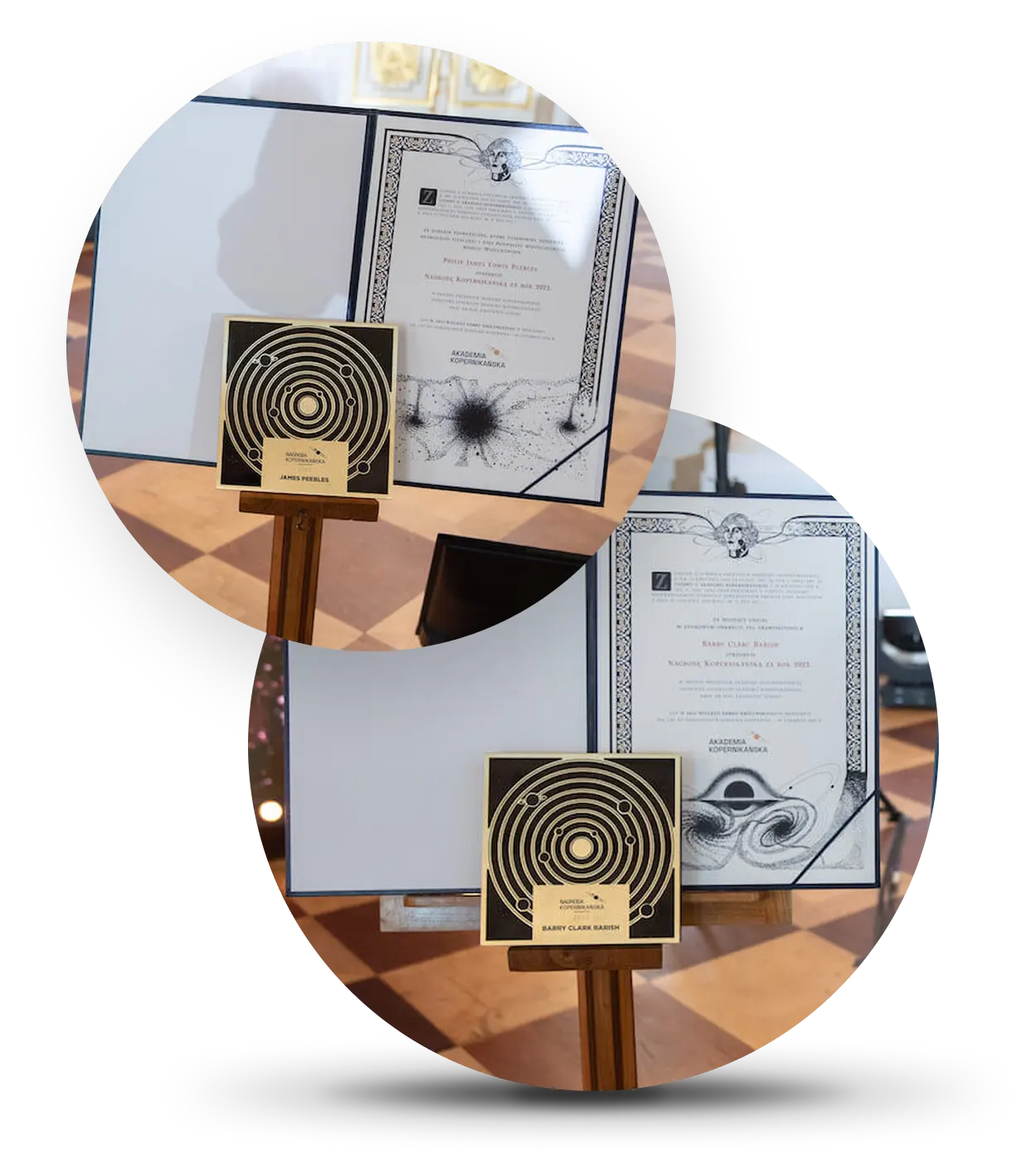
Awarding of the Copernican Awards
Barry Clark Barish
(born January 27, 1936 in Omaha)

Philip James Edwin Peebles (Jim Peebles)
(born April 25, 1935 in Winnipeg)
He studied at the University of Manitoba, where he received a BSc degree. In 1958, he moved to Princeton University, where he received a PhD in 1962. He connected his entire scientific career with this university.
He mainly dealt with theoretical cosmology, developing models of the Big Bang. In the 1960s, together with Robert Dicke, they assumed the existence of the microwave background radiation (previously postulated by George Gamow) and planned to confirm its existence. They were preceded by a group from Bell Labs (Arno Penzias and Robert Woodrow Wilson). Peebles studied the characteristic features of this radiation, trying to use them as assumptions for models of the universe. He studied the occurrence of helium and other light elements in the universe, demonstrating on this basis the agreement of the Big Bang theory with observations. He presented evidence for the occurrence of significant amounts of dark matter in the galactic halo.
On October 8, 2019, he was awarded the Nobel Prize in Physics for his theoretical discoveries in physical cosmology. He received half of the prize, the other half was shared by Michel Mayor and Didier Queloz.

